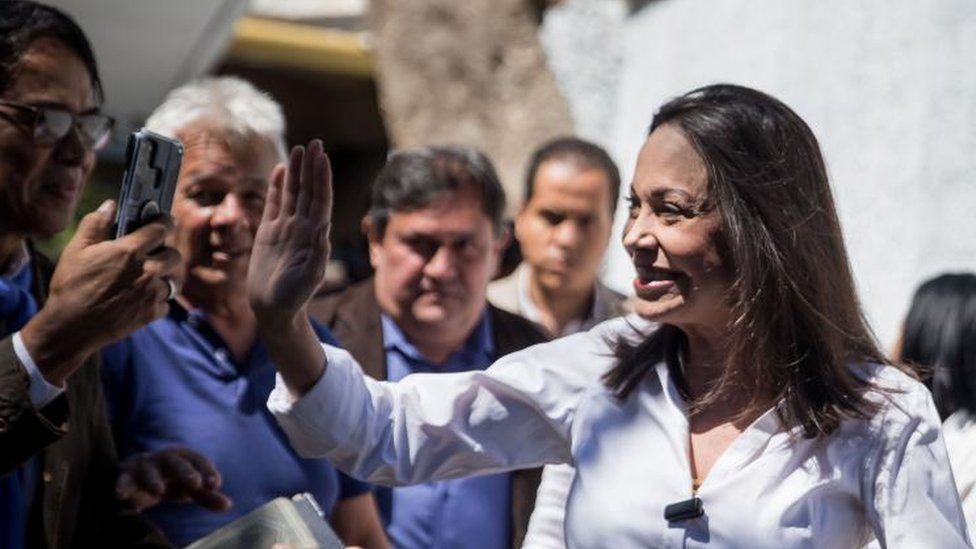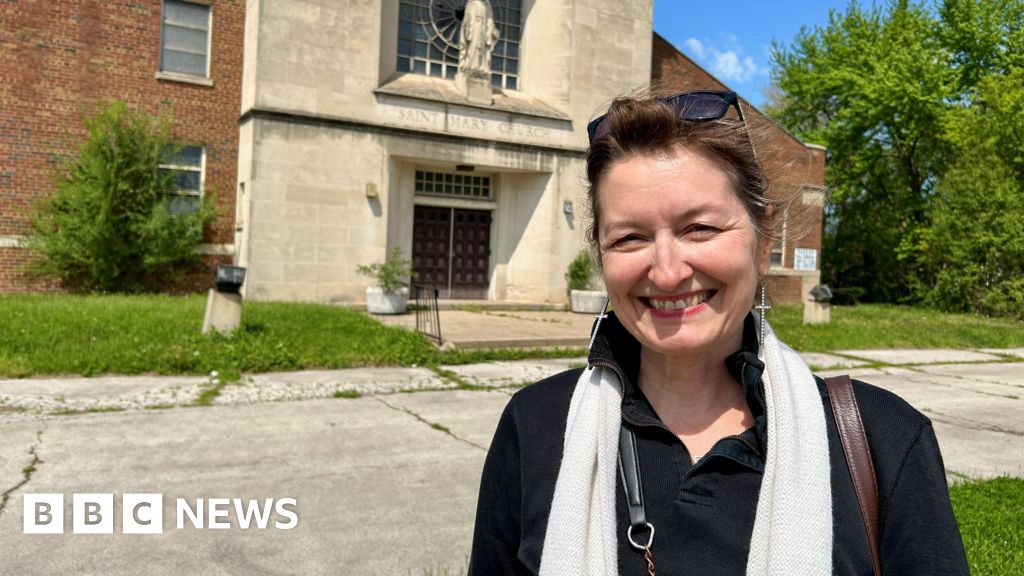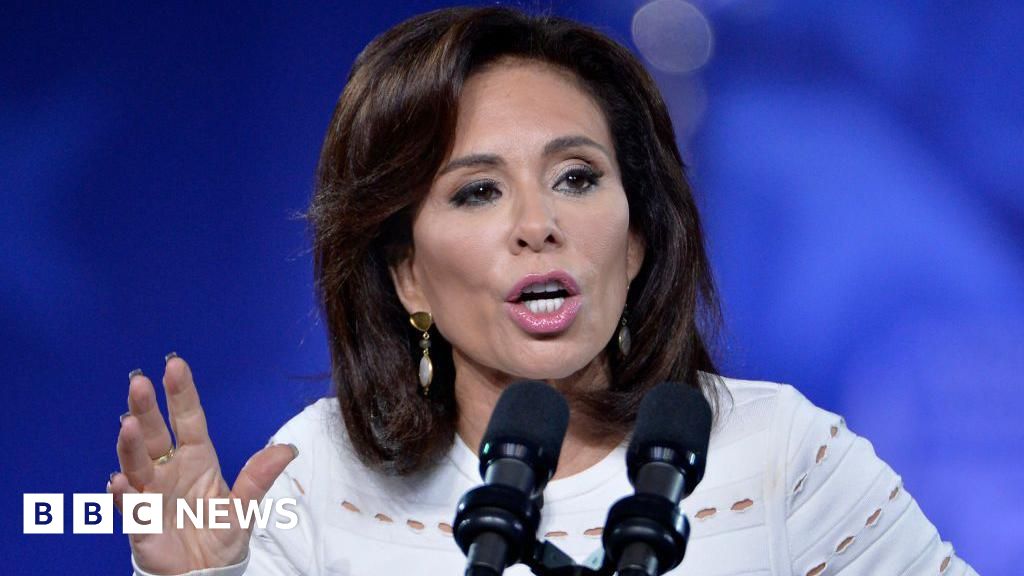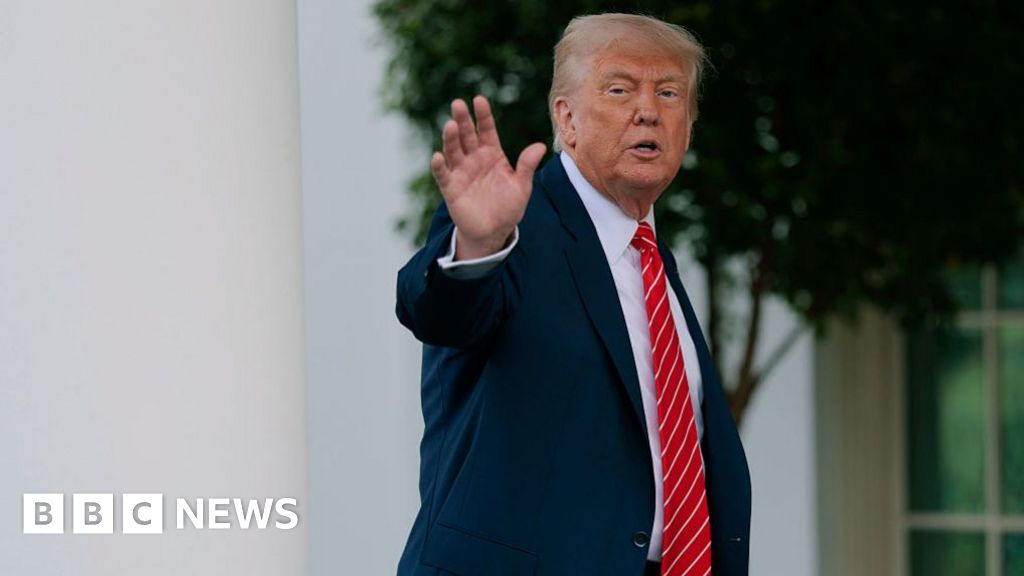ARTICLE AD BOX
 Image source, EPA
Image source, EPA
María Corina Machado says she will stand firm and continue to fight the ban which bars her from running for president
By Vanessa Buschschlüter
BBC News
The United States has reimposed some sanctions on Venezuela, days after the South American country's top court upheld a ban on the main opposition candidate, María Corina Machado.
She won a primary by a landslide to become the opposition's unity candidate for the 2024 presidential election.
But on Friday, Venezuela's Supreme Court confirmed a 15-year ban on Ms Machado running for public office.
Ms Machado said she would stay in the race for president despite the ban.
The US loosened its sanctions on Venezuela in October after the government of President Nicolás Maduro reached a deal with the opposition, laying some of the groundwork for free and fair presidential elections to be held in the second half of 2024.
As part of the agreement, the Maduro government - which was re-elected in 2018 in an election widely dismissed as neither free nor fair - said it would allow international observers to monitor the election.
Under the agreement, dubbed the "Barbados deal" after the Caribbean country where the two sides met, opposition candidates who had been barred from running for office were also allowed to appeal against their bans.
In exchange, the US, which backed the Barbados deal, eased some of its sanctions on Venezuela.
But on Friday, the appeals lodged by Ms Machado and another well-known opposition leader, Henrique Capriles, were rejected by the Supreme Court. The court did, however, lift the bans on some lesser-known politicians.
Image source, EPA
Image caption,Jorge Rodríguez said the process of banning Ms Machado from office had been above board and fair
The US state department released a statement the next day calling the decision to keep the ban on María Corina Machado in place "deeply concerning".
It said it ran "contrary to the commitments made by Maduro and his representatives under the Barbados electoral roadmap agreement to allow all parties to select their candidates for the presidential election".
The reintroduction of sanctions on Venezuela's mining sector followed on Monday.
The US Office of Foreign Assets Control (Ofac) warned US companies doing business with Venezuela's state-owned mining firm Minerven to finish "winding down" their dealings with the company by 13 February.
Minerven has been the target of US sanctions before. In 2019, Ofac accused [President] "Maduro and regime insiders" of using Minerven, which mines gold, "to enrich themselves at the expense of the Venezuelan people".
The fact that the US government reinstated sanctions on the mining sector but has so far held off reimposing restrictions on Venezuela's oil industry suggests that it is opting for a gradual approach, showing its disapproval but leaving room for more hard-hitting sanctions should the ban on Ms Machado continue in place.
White House national security spokesman John Kirby told reporters on Monday that the Maduro government still had time until "spring" to "honour their commitments". "They've got decisions they have to make before we weigh what decisions we'll take."
Ms Machado has promised to stand firm, insisting that she has been given a mandate in the primary which she said she would fulfil: "We are going to win and they must prepare to lose... They cannot hold elections without me."
Jorge Rodríguez, a close ally of Mr Maduro who represented the government at the Barbados talks, insisted that the government had upheld its end of the bargain: "Those who wanted to appeal appealed and also pledged to respect the outcome."

 1 year ago
34
1 year ago
34








 English (US) ·
English (US) ·